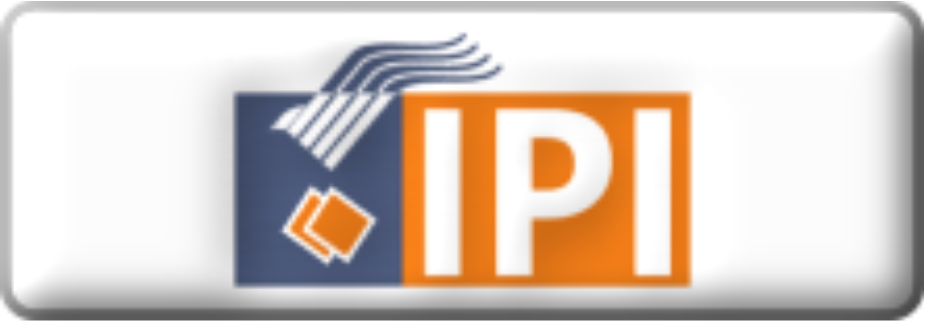Implementation e-learning through physics education study program learning on Self-Regulated Learning (SRL)
Abstract
The Covid-19 pandemic in Indonesia has caused various learning changes that initially used the direct learning process to become distance learning. In this research, the researcher aims to implement e-learning through introductory physics lectures in the physics education study program for prospective science teachers. The type of research used is experimental research with a one-shot case study research design. The sample in the research is a candidate for science teacher in semester 1 (one) in the physics education study program as many as 40 students. This study uses an instrument in the form of a self-regulated learning instrument with 19 questions. The results of this study indicate that the SRL indicator is independence from others as much as 73%, 70% of students in the indicator of self-confidence, 68% behave in a disciplined manner, 68% have a sense of responsibility, the ability to control themselves is 77%, and the percentage is 79 % behave on their initiative. The application of e-learning can provide opportunities for prospective science teacher students to develop and improve Self-Regulated Learning (SRL) in the basic physics lecture process. This research implies an alternative choice of learning that can be applied in basic physics lectures to support student learning independence.
Keywords
Full Text:
PDFReferences
Coman, C., Țîru, L. G., Meseșan-Schmitz, L., Stanciu, C., & Bularca, M. C. (2020). Online teaching and learning in higher education during the coronavirus pandemic: Students’ perspective. Sustainability, 12(24), 10367.
Eveline, E., Wilujeng, I., & Kuswanto, H. (2019, June). The effect of scaffolding approach assisted by PhET simulation on students’ conceptual understanding and students’ learning independence in physics. In Journal of Physics: Conference Series (Vol. 1233, No. 1, p. 012036). IOP Publishing.
Firman, F., & Rahayu, S. (2020). Pembelajaran online di tengah pandemi covid-19. Indonesian Journal of Educational Science (IJES), 2(2), 81-89.
Hartley, D. E. (2001). Selling e-learning. American Society for Training and Development.
Herliandry, L. D., Nurhasanah, N., Suban, M. E., & Kuswanto, H. (2020). Pembelajaran pada masa pandemi covid-19. JTP-Jurnal Teknologi Pendidikan, 22(1), 65-70.
Hidayati, K., & Listyani, E. (2010). Pengembangan instrumen kemandirian belajar mahasiswa. Jurnal Penelitian dan Evaluasi Pendidikan, 14(1).
Holstein, H. (1986). Murid belajar mandiri: Situasi belajar mandiri dalam pelajaran sekolah. Bandung: Penerbit Remadja Karya CV Bandung.
Hong, J. C., Lee, Y. F., & Ye, J. H. (2021). Procrastination predicts online self-regulated learning and online learning ineffectiveness during the coronavirus lockdown. Personality and individual differences, 174, 110673.
Jansen, R. S., van Leeuwen, A., Janssen, J., Conijn, R., & Kester, L. (2020). Supporting learners' self-regulated learning in Massive Open Online Courses. Computers & Education, 146, 103771.
Kusuma, J. W., & Hamidah, H. (2020). Perbandingan hasil belajar matematika dengan penggunaan platform Whatsapp Group dan webinar Zoom dalam pembelajaran jarak jauh pada masa pandemik Covid 19. JIPMat, 5(1).
Maatuk, A. M., Elberkawi, E. K., Aljawarneh, S., Rashaideh, H., & Alharbi, H. (2022). The COVID-19 pandemic and E-learning: challenges and opportunities from the perspective of students and instructors. Journal of computing in higher education, 34(1), 21-38.
Maulana, A. W., Wilujeng, I., & Kuswanto, H. (2019, June). Learning with the Social Media Assisted Science, Technology and Society Approach to Improve Self-Learning Motivation. In Journal of Physics: Conference Series (Vol. 1233, No. 1, p. 012060). IOP Publishing.
Purwanto, A., Pramono, R., Asbari, M., Hyun, C. C., Wijayanti, L. M., & Putri, R. S. (2020). Studi eksploratif dampak pandemi COVID-19 terhadap proses pembelajaran online di sekolah dasar. EduPsyCouns: Journal of Education, Psychology and Counseling, 2(1), 1-12.
Shahzad, A., Hassan, R., Aremu, A. Y., Hussain, A., & Lodhi, R. N. (2021). Effects of COVID-19 in E-learning on higher education institution students: the group comparison between male and female. Quality & quantity, 55, 805-826.
Shao, M., Wei, P., & Gao, L. (2020, June). Study of Blended Learning in College physics experiments Under the Information Environment. In 2020 International Conference on Artificial Intelligence and Education (ICAIE) (pp. 229-232). IEEE.
Sugiono, S. (2016). Metode penelitian kuantitatif, kualitatif, dan r & d. Bandung: Alfabeta.
Sun, L., Tang, Y., & Zuo, W. (2020). Coronavirus pushes education online. Nature materials, 19(6), 687-687.
Susanti, N., Yennita, Y., & Azhar, A. (2020). Development of contextual based electronic global warming modules using flipbook applications as physics learning media in high schools. Journal of Educational Sciences, 4(3), 541.
Tsaniyah, S. F., Ayu, H. D., & Pratiwi, H. Y. (2019). Pengaruh Model Blended Learning menggunakan Schoology Terhadap Prestasi Belajar ditinjau Dari Kemandirian Belajar Siswa. RAINSTEK : Jurnal Terapan Sains & Teknologi, 1(1), 71–77. https://doi.org/10.21067/jtst.v1i1.3236
Utomo, K. D., Soegeng, A. Y., Purnamasari, I., & Amaruddin, H. (2021). Pemecahan Masalah Kesulitan Belajar Siswa pada Masa Pandemi Covid-19. Mimbar PGSD Undiksha, 9(1), 1-9.
Zhang, T., Taub, M., & Chen, Z. (2021, April). Measuring the impact of COVID-19 induced campus closure on student self-regulated learning in physics online learning modules. In LAK21: 11th International Learning Analytics and Knowledge Conference (pp. 110-120).
Zimmerman, B. J. (2013). From cognitive modeling to self-regulation: A social cognitive career path. Educational psychologist, 48(3), 135-147.
Zimmerman, B. J. (2015). Self-Regulated Learning: Theories, Measures, and Outcomes (second edition.). Vol. 21. Elsevier. 541–546 pages. https://doi.org/10. 1016/B978-0-08-097086-8.26060-1
DOI: http://dx.doi.org/10.30870/gravity.v9i1.11590
Refbacks
- There are currently no refbacks.
Gravity has been indexed by:
_Kecil1.jpg)
| |
      |
| Gravity : Jurnal Ilmiah Penelitian dan Pembelajaran Fisika is publihed by Department of Physics Education, Universitas Sultan Ageng Tirtayasa jointly with Physical Society of Indonesia (PSI) | |
 | Gravity : Jurnal Ilmiah Penelitian dan Pembelajaran Fisika is licensed under a Creative Commons Attribution-ShareAlike 4.0 International License Copyright © 2020, Gravity: Jurnal Ilmiah Penelitian dan Pembelajaran Fisika. |







